Does it pay to be loyal to your employer?
22 March 2018

Have you worked for the same employer for a long time or do you change jobs often? What’s the ideal length of time to spend working for one employer? Does it pay off to be loyal? We tried to find the answers to these questions in the international Paylab Compensation Monitor, a survey of employees conducted in January and February 2018 on a sample of 57,719 respondents from 12 European countries.
What's the optimum length of time to work for one employer?
In the international Paylab Data Research, we asked employees what the ideal time was to work for the same employer. The largest group, 39% of employees, prefer a period of 3 to 5 years. Up to 48% of employees in the 25 to 34 age group tend to agree with this period.
A fewer respondents, 26%, favour a longer period of 6 - 9 years as the ideal period for which an employee should work for one employer. A slightly higher percentage of older employees in the 45 to 55 age group prefer a longer period over others (35% of this group).
The survey results clearly show that the younger generations, Millennials and Generation Z, have a tendency to consider their career challenges more often and look for opportunities with other employers. Generation Z, who are currently joining the labour market, imagine spending shorter intervals with individual employers.
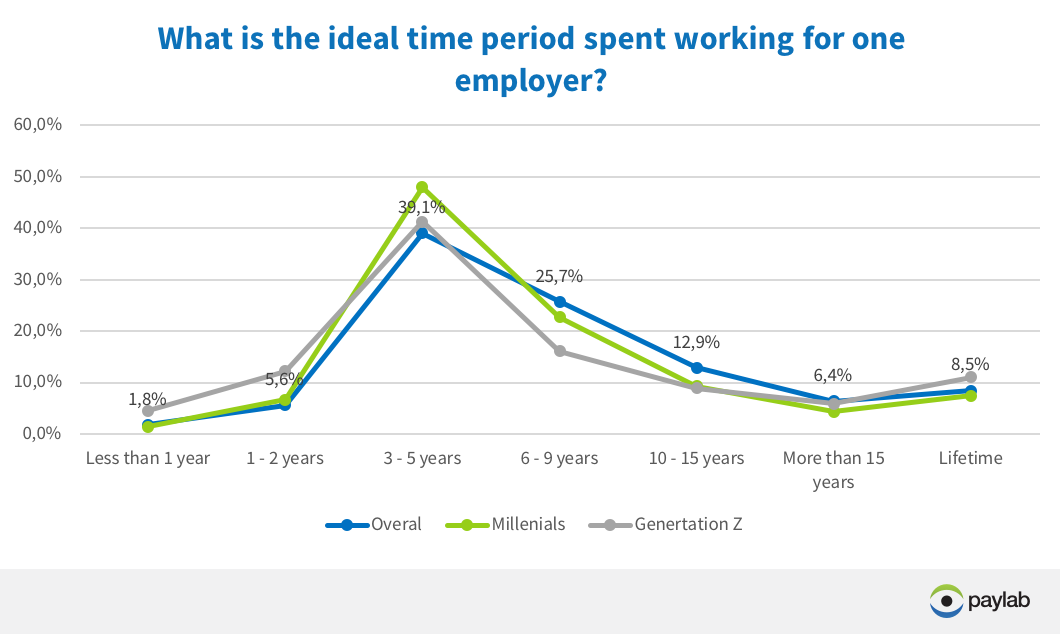
The potential of a promising career increases loyalty
In general, loyal employees working for one employer for more than 5 years are in the minority on the labour market at only 27.5%. The largest group was those who were employed for less than 2 years.
Among the countries in which the survey was conducted, the most loyal employees who were working for their current employer for more than 5 years were found in Finland, Slovenia and Poland. The lowest share of these people is currently in Serbia.
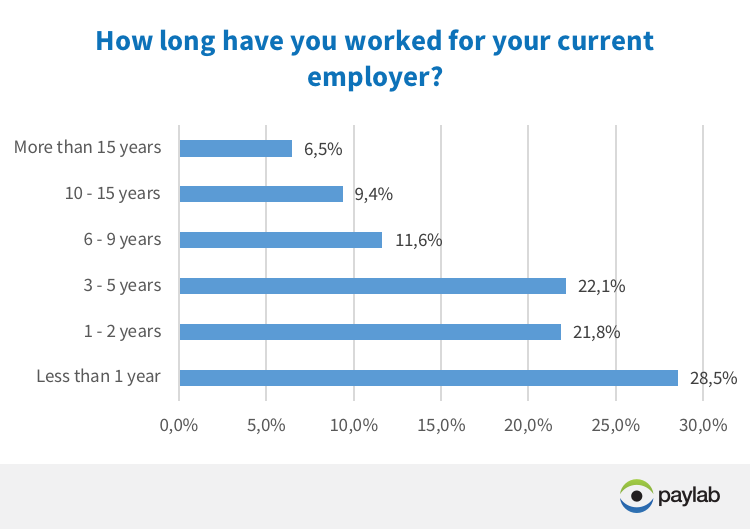
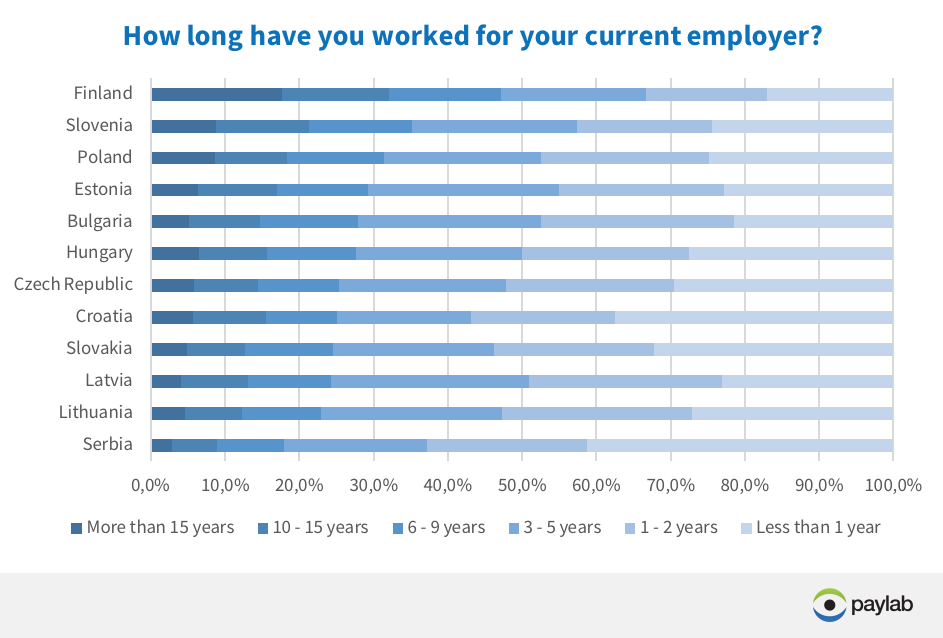
Loyalty to an employer largely depends on career growth inside the company. There is a significantly higher share of people working for one employer for more than 5 years among those currently working in lower, middle and top management positions. This is largely related to the fact that these people had to gradually work their way up the ladder within their careers. Work in management positions often provides employees with a broader perspective, an opportunity for realisation over the long-term and an attractive mix of financial and non-financial benefits.
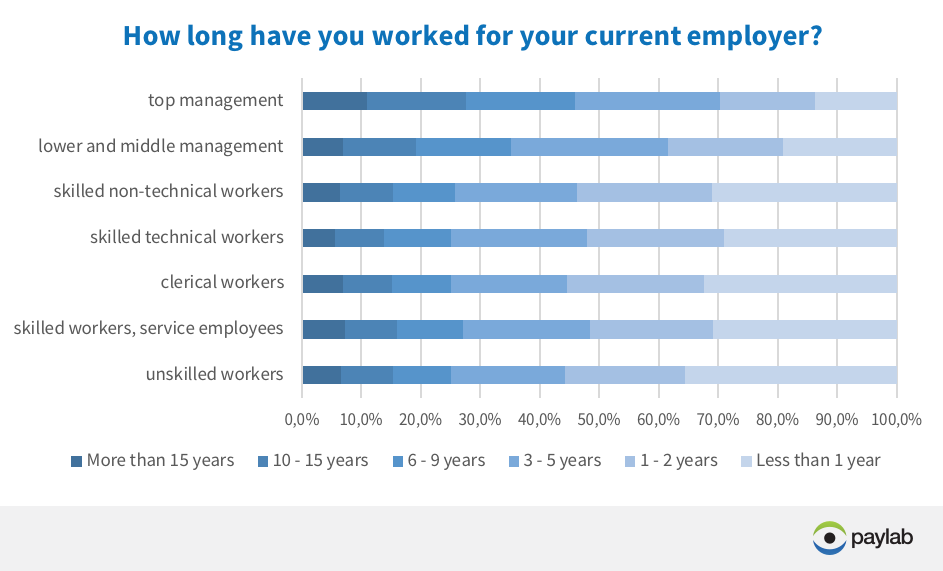
Does it pay to work for the same employer over the long-term?
Around half of respondents (47%) think that being loyal to their employer is worth it and that employees have tangible proof of this in the form of financial or non-financial benefits. Specifically, 30% of people think that employees who remain committed to working for one employer over the long-term feel the results in their pay. Another 17% of respondents think that loyalty is associated with specific non-financial benefits and advantages.
The opposite opinion is expressed by 32% of respondents who are convinced that new employees often have comparable benefits to employees who have worked for an employer long-term. They are convinced that the differences between those with less service time and more established employees are wiped out over a certain period of time and a loyal employee working for one company for an extended period of time doesn't have any extraordinary standing within the company with respect to any specific financial or non-financial benefits. Another 21.6 per cent of employees were unable to judge or were unable to answer the question.
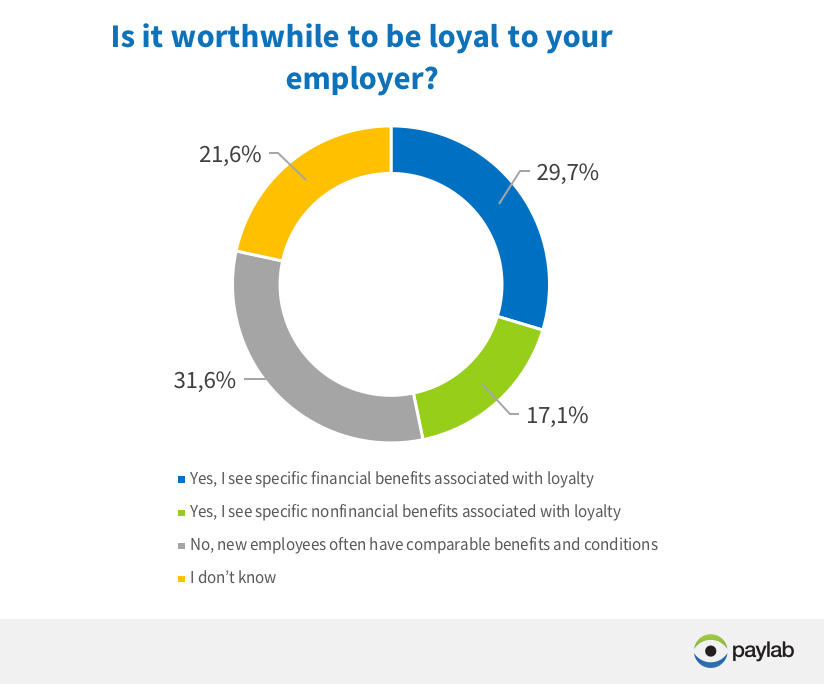
Comparison of new-hire employees and longer serving employees
In one hand new-hire employees, those working for an employer for less than a year, have the most intense feeling that loyalty pays off. On the other hand, people currently working for longer than 5 years for their current employer are more likely than new-hire employees to have the opinion that loyal employees do not have any special advantages within a company. This may be related to the fact that the salary system and compensation scheme is more intensively communicated to new-hire employees at job interviews.
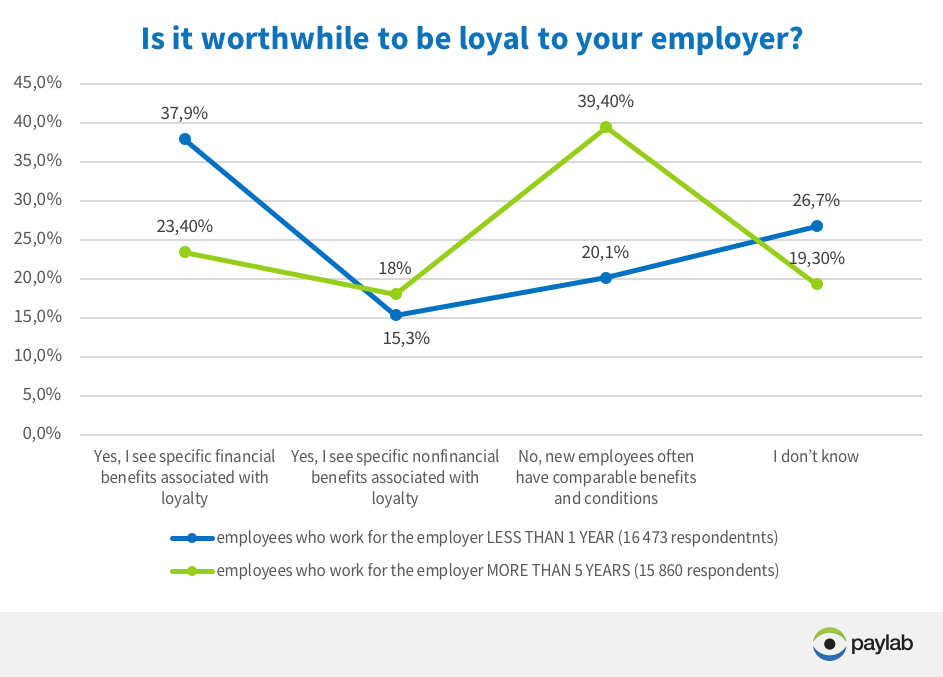
How many employers have you had?
We also asked employees in the survey how many employers they'd had. A majority of younger employees under the age of 34 had had less than four. Older employees hadn't worked for more than five employers in most cases. A previous wave of the Paylab Compensation Monitor confirmed the trend that the most effective strategy for people to increase their income is job jumping, or finding better paying employment outside their current place of employment. They even consider it a more promising way to increase their income than negotiating a pay raise with their current direct supervisor. Read more here.
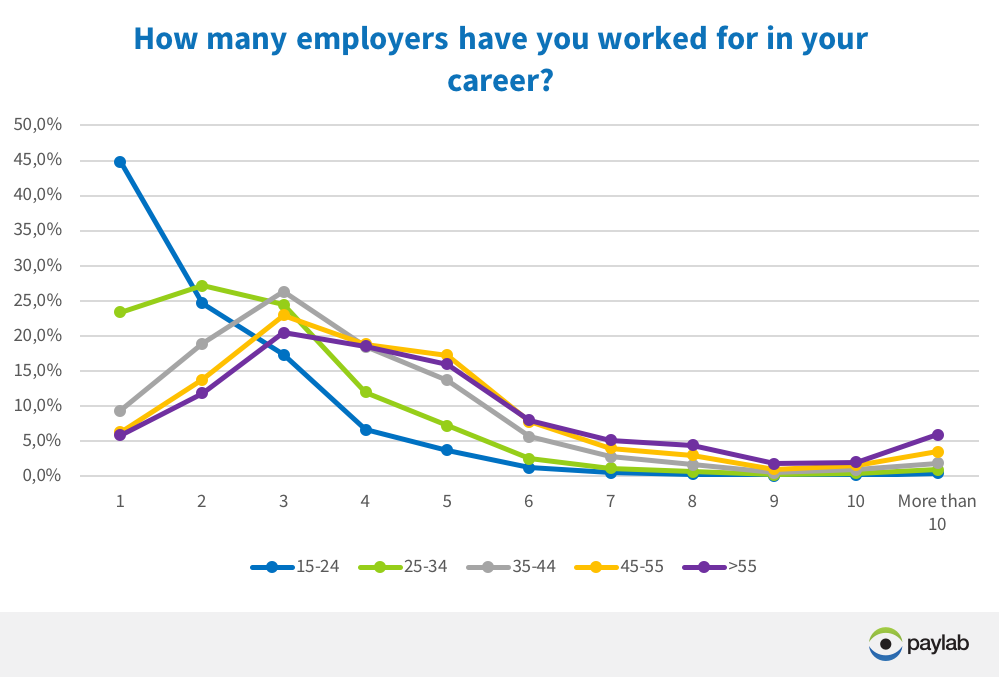
About the survey
The international Paylab Compensation Monitor employee survey regularly monitors trends in employee compensation and benefits. The survey is conducted online in 12 countries via local salary portals: Bulgaria - Zaplatomer.bg (2,051 respondents), Czech Republic - Platy.cz (12,964 respondents), Slovakia - Platy.sk (10,450 respondents), Hungary - Fizetesek.hu (6,424 respondents), Poland - PensjoMetr.pl (599 respondents), Slovenia - Placa.si (2,797 respondents), Croatia - MojaPlaca.hr (6,480 respondents), Serbia - InfoPlate.rs (1,428 respondents), Estonia - Palgad.ee (3,531 respondents), Lithuania - Manoalga.lt (3,193 respondents), Latvia - Algas.lv (3,638 respondents), Finland - Palkkadata.fi (4,164 respondents).

